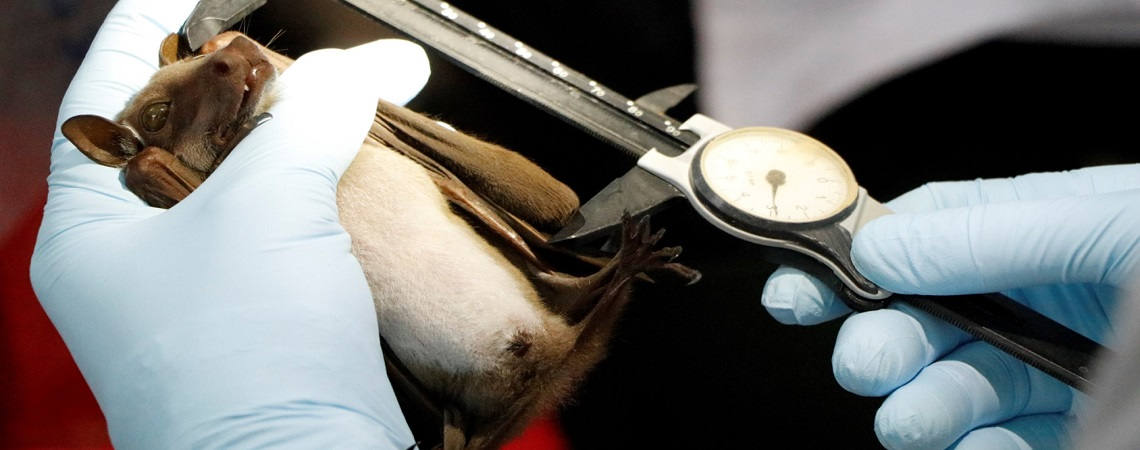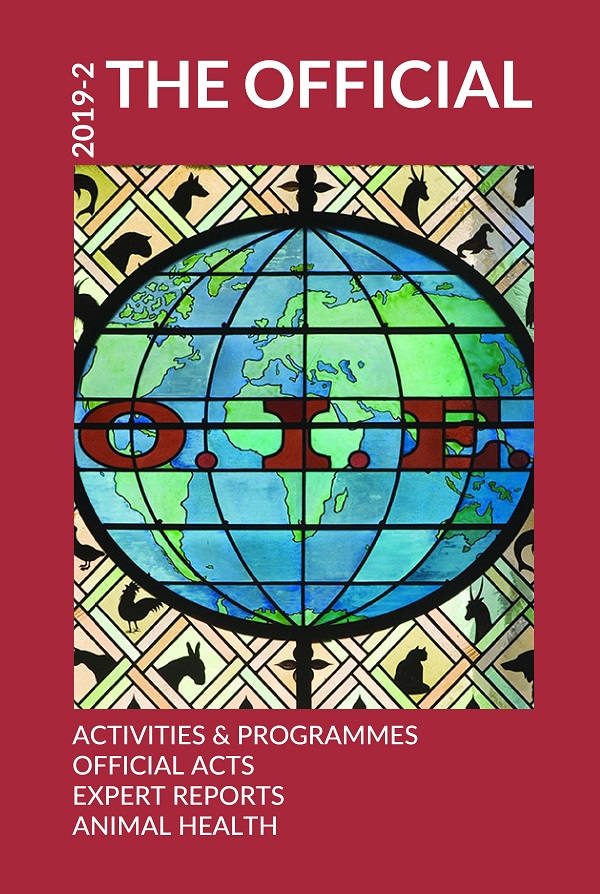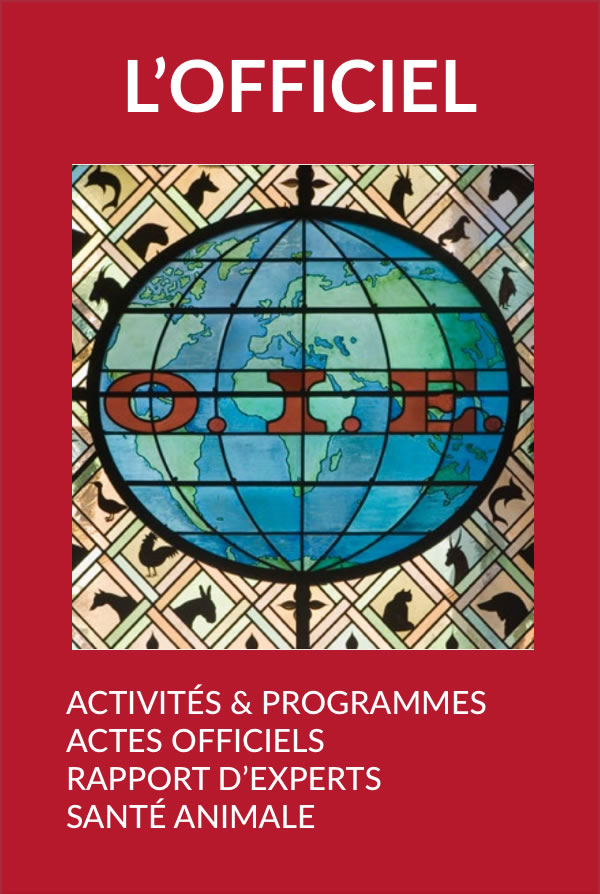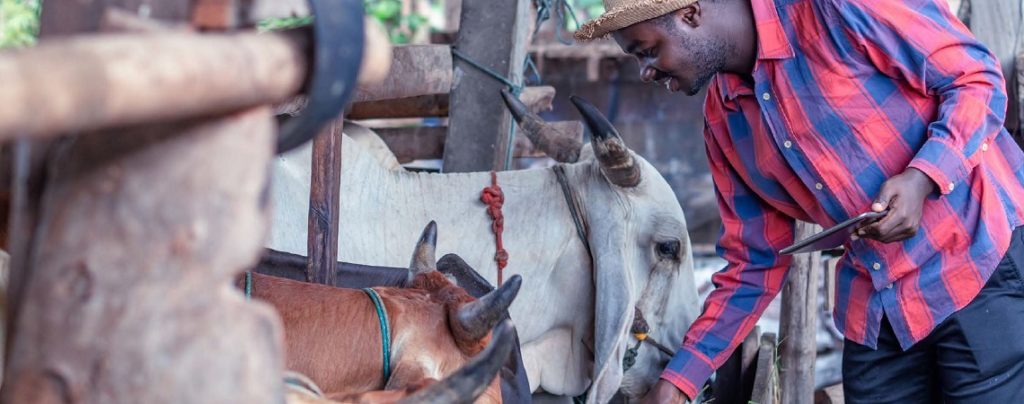Activities & Programmes Posted on 2019-10-09 11:53:16
OIE
Governance activities of the EBO–SURSY project
Keywords
This five-year project aims to strengthen early detection systems in wildlife in ten countries of West and Central Africa(1), using a One Health approach, to better detect, differentiate and prevent outbreaks of Ebola virus disease and four other viral haemorrhagic diseases: Marburg virus disease, Rift Valley fever, Crimean-Congo haemorrhagic fever and Lassa fever. To this end, the OIE is working with three scientific partners: the French Agricultural Research Centre for International Development (Cirad), the Pasteur Institute and the French National Research Institute for Development (IRD). Project governance is supported by a Programme Committee and an Advisory Committee.
On 15 April 2019, the Second Meeting of the Programme Committee for the EBO–SURSY project was held at OIE Headquarters and chaired by Dr Jean-Philippe Dop, who represented Dr Matthew Stone, Deputy Director General – International Standards and Science, and President of the Programme Committee. Also taking part were an EU representative, scientific partners in the project and OIE staff members. The meeting was a reminder of the importance of involving national institutions, and especially local laboratories, universities and research institutes, in the project’s activities to ensure that its outcomes are sustainable.
Intersectoral collaboration was also a focus of discussions, including the new opportunities provided by the workshops organised jointly with the World Health Organization (WHO), which facilitate implementation of the One Health approach and the development of joint activities by animal and human health operators. Collaboration is also enhanced by involving the staff of the Ministries of the Environment, Health, Agriculture and Livestock in the activities of the scientific partners within the ten countries involved. Participants also exchanged views on the surveillance protocols for viral haemorrhagic fevers in wildlife and the risk maps that will be prepared.
On 24 May 2019, the Second Meeting of the Advisory Committee for the EBO–SURSY project took place, chaired by Dr Karim Tounkara, representing Dr Monique Éloit, Director General of the OIE and President of the Advisory Committee. The meeting was attended by the OIE Delegates of the beneficiary countries of the project in West and Central Africa, the project’s scientific partners, OIE staff members and representatives of the African Union–Interafrican Bureau for Animal Resources (AU–IBAR) and WHO.
This meeting provided an opportunity to take stock of the project’s activities after two years of implementation. Particular emphasis was placed on the importance of anchoring the project, both at a continental level – since its activities integrate four of the five objectives of the AU–IBAR Animal Health Strategy for Africa – and within individual countries, through the involvement of each country’s Veterinary Services. Nonetheless, the Advisory Committee recommended that the African Union alert the highest authorities in Africa to the alarming inadequacy of the human resources allocated to national Veterinary Services in the majority of African countries.
Discussions also concerned the lessons learned from previous Ebola virus disease epidemics and the best practices for anticipating zoonotic disease epidemics. In this regard, the Advisory Committee welcomed the national workshops on surveillance protocols being held in 2019. It was also recommended that the OIE work on the definition of syndromic cases in wildlife, to facilitate early detection and rapid response in order to control the viral haemorrhagic fevers targeted by the project.
The project’s communication tools are aimed, on the one hand, at strengthening knowledge of viral haemorrhagic fevers among the staff of technical services (animal health services, human health services, and other staff involved at the human–animal–ecosystems interface) and, on the other hand, at raising the awareness of local populations of the risks associated with zoonoses. These tools were presented to the participants with a view to their dissemination.
The next meeting of the Advisory Committee is scheduled for May 2021 and will provide an opportunity to present the scientific results of the various collections of data currently in progress. With this in mind, it was recommended that the public interface of the project’s database be made available on the OIE website dedicated to the project.
____________________
(1) Cameroon, Central African Republic, Republic of the Congo, Democratic Republic of the Congo, Côte d’Ivoire, Gabon, Guinea, Liberia, Senegal and Sierra Leone.












